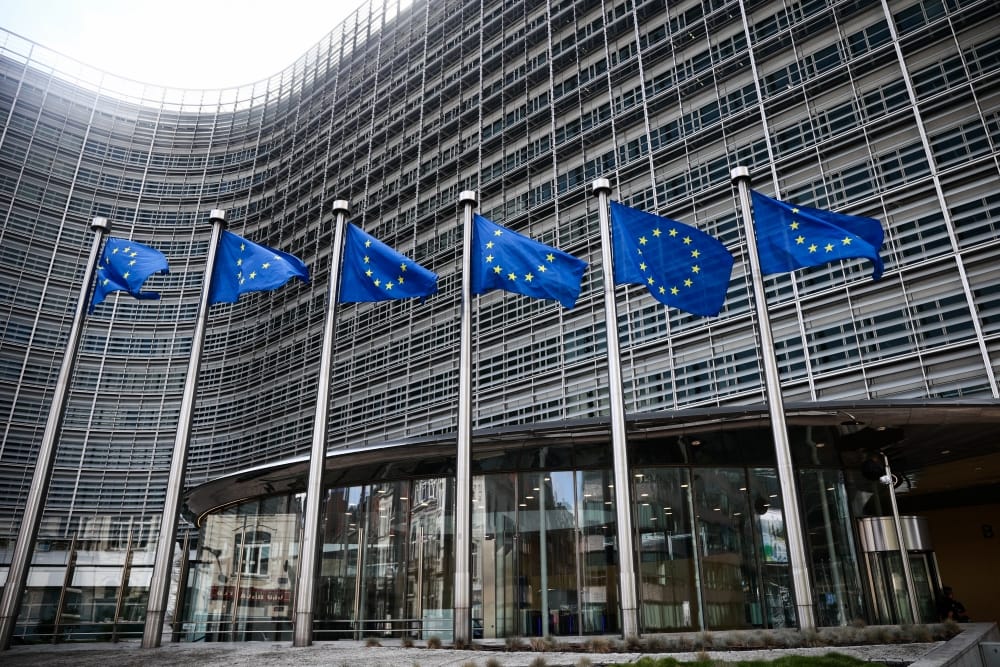In the corridors of the European Union in Brussels and the European Parliament in Strasbourg, the atmosphere of coming change is almost palpable.
Hundreds of current members of parliament are beginning to reckon with their dwindling chances of re-election, with political advisers, policy aides and other staff whispering to each other around corners about job prospects after June’s European elections.
Europe is changing. The huge demographic, cultural and existential issues brought about by accelerated changes in Europe in recent times are finally also giving rise to enormous political changes.
The conservative Italian writer Francesco Giubilei recently wrote about the changing political environment and what it means for Europe: “We need to rethink the current model of Europe. The European Union is increasingly out of touch with the needs of its citizens and increasingly linked to the demands of the Brussels establishment.” It is clear that a majority of Europeans are dissatisfied with the current political order.
Last weekend’s election in Portugal was a clear precursor to what can be expected for the rest of 2024 and beyond in the rest of Europe. The big winner of the Portuguese election was the right-wing party Chega (directly translated as Enough) whose support rose from 7% in the previous election to more than 18%. However, Chega’s success is greater than just his strong third place in the election result. The party also succeeded in setting the agenda in the election campaign and forced the centre-right Democratic Alliance, which only finished first, to shift further to the right during the campaign itself.
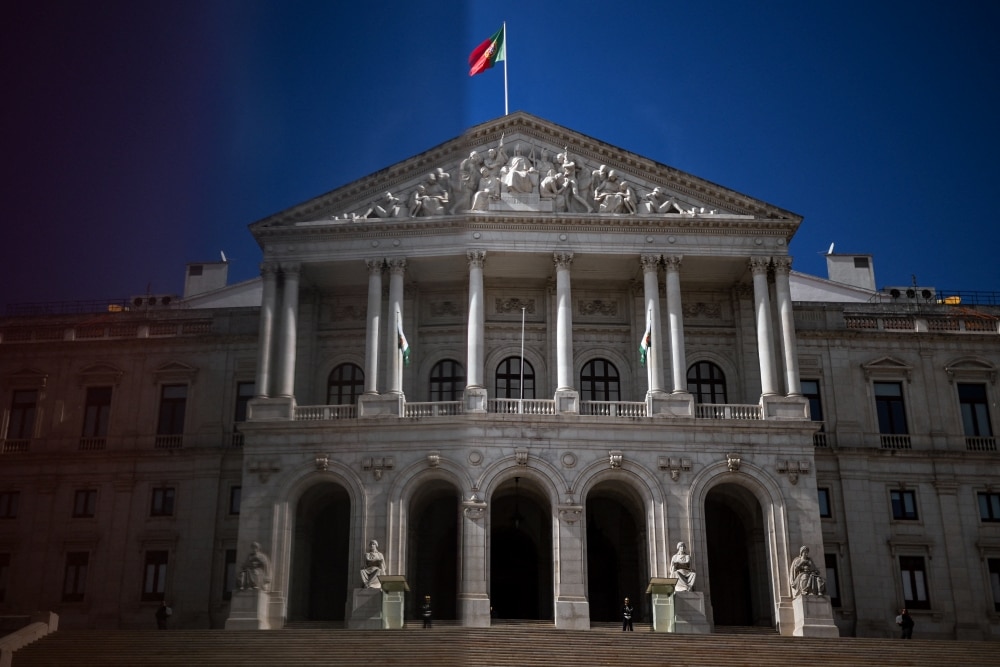
This trend, where right-wing parties come forward strongly and the old well-known centre-right popular parties are then forced to move to the right as well, is playing out across Europe. In the run-up to the European elections, it is also clear that this trend is already playing out in the European Union, where various concessions on, among other things, draconian environmental regulations that would harm farmers, as well as stricter immigration legislation, have been announced in the past few weeks.
According to polls, the centre-right Christian Democrats will once again be the largest power bloc in the European Parliament after this year’s election. The centre-left Social Democrats will finish second again. However, polls predict that the most right-wing group, Identity and Democracy (ID), will show the strongest growth and could finish third, followed by another right-wing group, the European Conservatives and Reformers (ECR). If the polls are correct, it is expected that the result of this year’s European elections will be the first since direct voting for members of the European Parliament in 1979, where the three right-wing and center-right groups together will win more than 50% of the seats.
Along with the strong growth in support for right-wing parties across Europe, it is also noticeable that many centre-right parties are also moving to the right in an attempt to win back lost support. In Germany, the Christian Democratic Union is much more conservative today than during the period when Angela Merkel was the party’s leader. Also in Austria, the Austrian People’s Party moved to the right. The same applies to the People’s Party in Spain and similar centre-right parties in Denmark, Sweden, Finland and Greece.
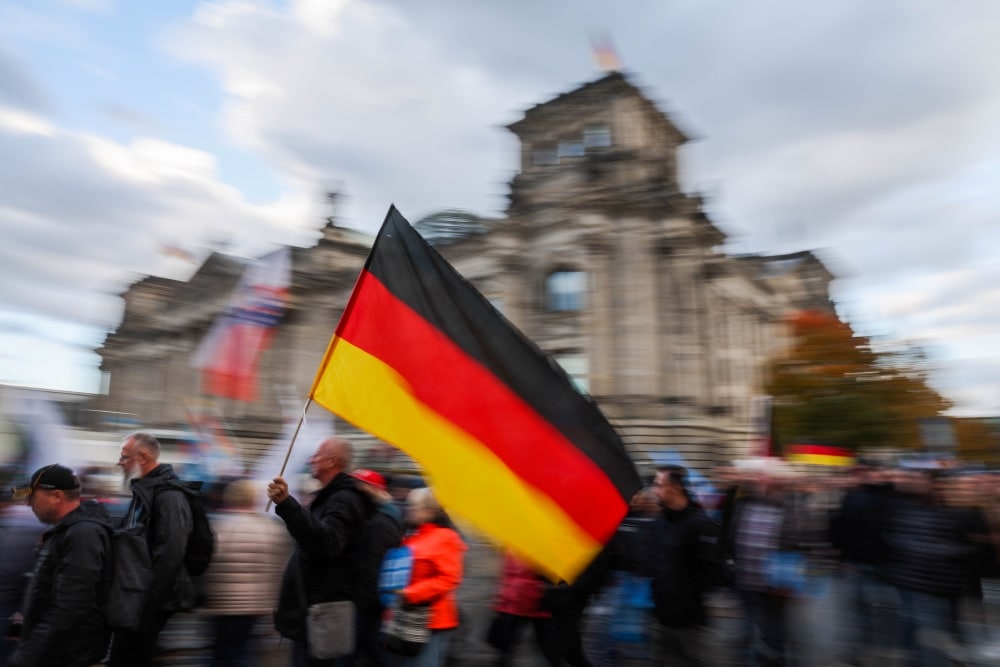
However, the election result in Portugal was already preceded by similar results in other countries. In Italy, from October 2022, this country has its most right-wing government since the end of the Second World War.
In Sweden, a centre-right new coalition government took over last year with the support of the right-wing Sweden Democrats (SD). The SD is now pushing for a new migration treaty which will bring an end to illegal immigration and which will end the granting of asylum.
In Finland, the country has its most right-wing government in decades, with a new coalition government launched in June last year. Four right-wing parties, including the right-wing populist Finns party, form part of a coalition government that is already moving to the right in its policies on immigration, development aid and the climate.
Later this year, voters in Belgium and Austria will also elect new governments. In Belgium, a further shift to the right is expected in Dutch-speaking Flanders. The chances are high that two right-wing Flemish parties, Vlaams Belang and Nuwe Vlaamse Alliansie, can together get more than 50% of the votes. Vlaams Belang has been leading in all polls for more than a year.
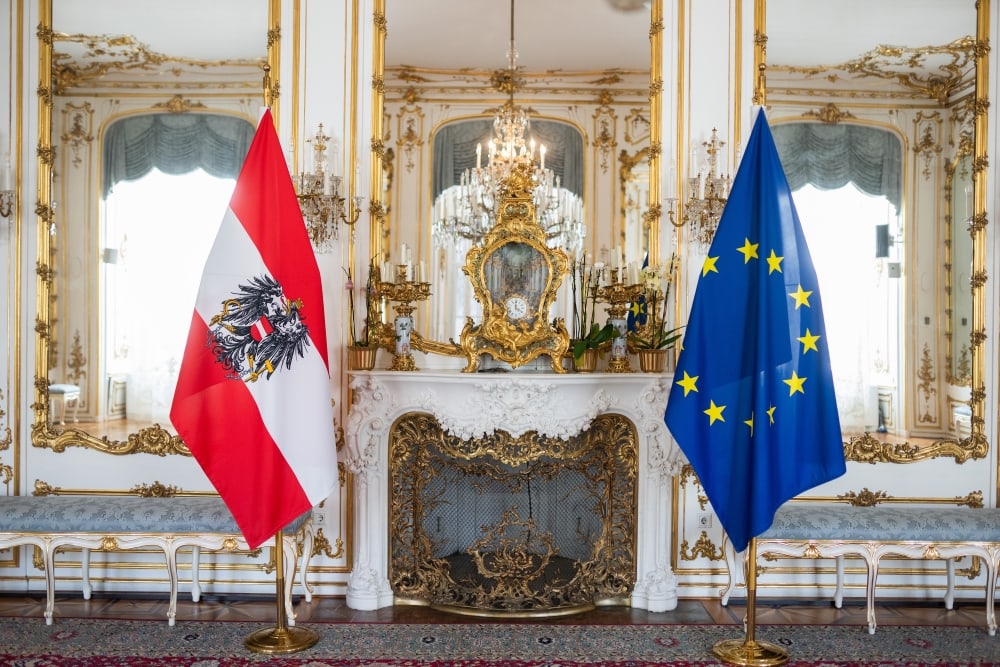
In Austria, the right-wing Freedom Party has also been leading for more than a year and a coalition government together with the center-right People’s Party is a strong possibility. It will also give Austria the most right-wing government since the end of World War II.
Although the next federal election in Germany will not take place until next year, this year there are elections in three eastern states. In all three, the right-wing Alternative for Germany (AfD) is leading. This party is also in a strong second position nationally and will probably win the second most seats in Germany in the European elections. If the AfD does well in the state elections, the question will arise as to whether the centre-right Christian Democrats’ policy of not cooperating with the AfD in governments can stand.
In France, the right-wing fire-eater politician Marine Le Pen has already been the most popular politician in the last few months. A majority of French would be comfortable with that if Le Pen is elected president in three years. Two years ago this was unthinkable. Le Pen’s party, Rassemblement Nationalis comfortably ahead in all polls for June’s European elections.
In recent decades, across Europe, but especially in the Netherlands, Belgium, France, Germany, Spain, Portugal and Italy, there has been a so-called cordon sanitaire rule, i.e. an agreement that parties labeled as far right are left out of all forms of government. The cordon sanitaire is crumbling in many European countries, and in Italy, Spain, Finland and now also in the Netherlands we already see that parties that were previously excluded now form part of government coalitions.
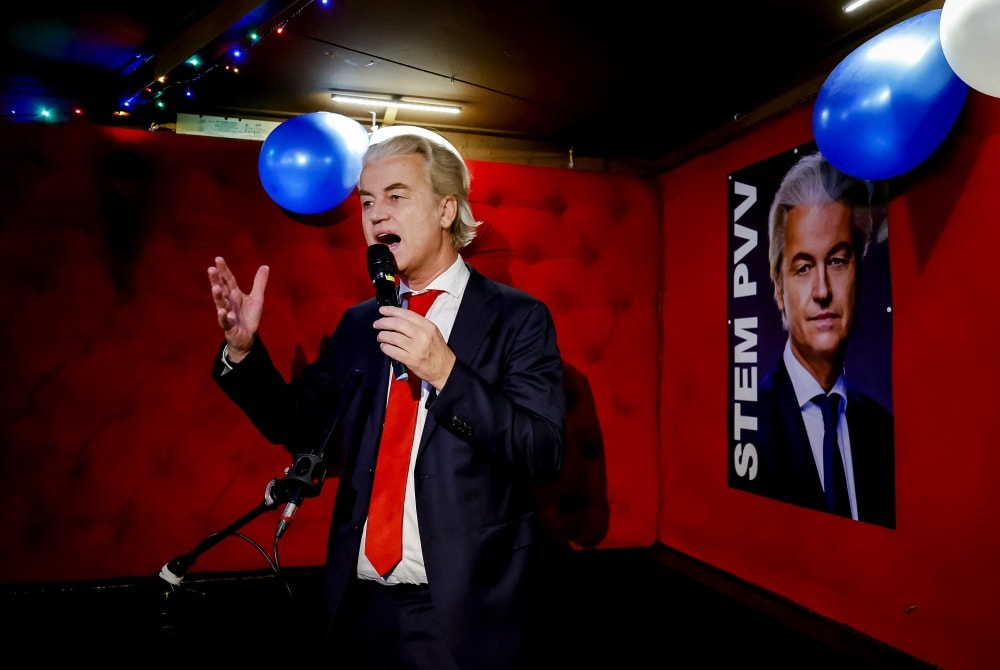
In the Netherlands it is not yet officially known, but in the past week great progress has been made in coalition negotiations. After the right-wing Partij voor de Vrijheid (PVV) of Geert Wilders finished comfortably first in November last year, a group of four right-wing and center-right parties are struggling to make progress with negotiations for a new government.
Last week, however, Wilders announced that he would withdraw his candidacy for prime minister in order to realize a right-wing government coalition. Another centre-right leader will probably be elected within the next few weeks by Wilders’ party and the BoerBurgerBeweging (BBB), the Nieuw Sociaal Contract (NSC) and the People’s Party for Freedom and Democracy (VVD). Chances are good that the next prime minister could be an extremely conservative political leader like the BBB’s Mona Keijzer.
In return for standing back, Wilders demands, among other things, strict new restrictions on immigration, fewer environmental regulations that negatively affect farmers, and more money to poor Dutch people rather than development aid and financial support to, among other things, Ukraine. If the coalition negotiations finally succeed, the Netherlands will get its most right-wing government since the end of the Second World War.
The question is whether the cordon sanitaire regarding right-wing parties in the European Parliament after June’s election can also be dismantled. In the past five years, a majority of the EU has been formed by the centre-right (and largest) bloc, namely the European People’s Party, the centre-left Socialists, and the liberal bloc of parties which include Emmanuel Macron of France and Mark Rutte of the Netherlands. include parties. However, this led to so many policy concessions to left and liberal parties that criticism of the leadership of the EU increased dramatically.
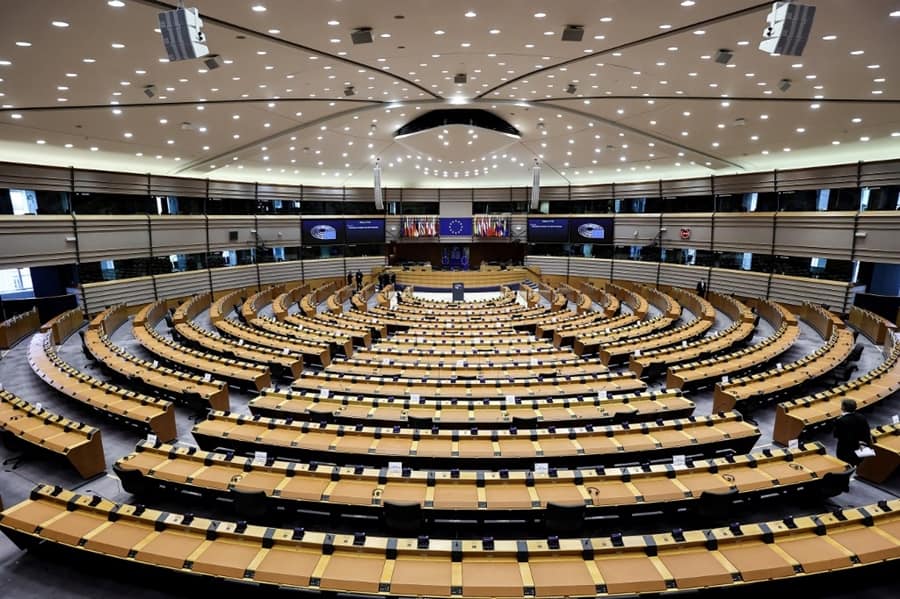
The leader of the Finnish party in Finland, as well as leaders in the Sweden Democrats, recently said again that their countries’ membership of the EU should be reconsidered. In the Netherlands, Wilders’ PVV is also mostly Eurosceptic. While support for Eurosceptic parties is increasing, there is currently no chance that any EU member will simply leave this bloc.
The biggest driving force behind Europe’s political shift to the right is the extent of illegal, but also legal, immigration to Europe. Europe is experiencing its most dramatic, and disruptive, demographic change ever. Whether political change will be able to stop this wave is uncertain. In Italy, a right-wing government has so far failed to get it right. In Greece, the current government is currently doing slightly better in its fight against illegal immigration.
The European Union’s controversial Green Deal is another reason for the political change. It is part of a series of concessions to left-wing parties that not only lead to draconian measures, but also raise serious questions about the sovereignty of EU member states. The protest action by farmers in the Netherlands, Belgium, France, Austria, Germany, Italy, Poland and Spain put the EU leadership on the back foot and exposed cracks in the liberal cohesion in Brussels.
A large part of the European population is unhappy about the continent’s current economic challenges. The EU area is currently experiencing economic stagnation, and some countries are even experiencing recession. This follows two years of high inflation. Government debt across Europe is the highest it has been in decades.

Foreign policy also has a significant influence on European political movements. The protracted war in Ukraine has not only raised fears of direct conflict with Russia, but has also disrupted energy supplies across Europe and led to a sharp rise in energy prices. Right-wing parties are increasingly in favor of a negotiation process to bring an end to the war in Ukraine. Europe’s ability to defend itself is also increasingly relevant again, especially in the run-up to this year’s US election. The growing gulf between the West and China will further contribute to questions about foreign policy during this year’s European elections.
However, right-wing politics in Europe remain largely reactionary. The question of Europe’s future lies deeper than simply illegal immigration, crackdowns and the war in Ukraine. This is directly related to the cultural decay in most European countries.
It is all well and good to try to limit immigration and point out the mistakes of the elite in Brussels, but in reality Europe’s, and the entire West’s, problems lie much deeper. Along with secularization we see a greater emphasis on the rights of individuals, and ultimately the collective of millions of individuals each selfishly trying to generate the most material benefit for themselves.
Giubilei describes it as a crisis of values and culture affecting the whole West and especially Europe. Giubilei also refers to Augusto Del Noce, the leading Catholic philosopher of the twentieth century, who sees the 1968 uprisings and the enlightenment in Europe as the cause of many of today’s problems. Del Noce was particularly critical of the attack on traditional institutions such as the family, but also the attack on values such as meritoriousness and hierarchy in society.
The challenge for right-wing parties and movements will be to move beyond merely reactive actions and slogans and create real solutions. This will include ways to protect values, traditions, culture and identity, increase population growth and convince a majority of people in Europe that it is worth defending not only what is important to them now, but also to build a better future for their descendants.
Right-wing, childless and faithless leaders such as Marine Le Pen, Geert Wilders and Alice Weidel unfortunately do little to achieve this by their own example. Precisely because of this, Europe and the entire West will have to find better leaders. If not, the current right-wing movement in Europe will simply remain a temporary, reactionary movement.

